As soon as media outlets called the presidential election in favor of Joe Biden, political commentators began pontificating on the need to unify and heal a deeply divided country. More votes were cast in this election than any other—approximately 145 million, with Biden receiving more total votes than any presidential candidate in history. But instead of conceding defeat, a salty Donald Trump is contesting the election through legal means, doubtlessly seeking to invalidate large numbers of votes from people of color—the traditional target of such electoral challenges.
Trump’s baseless claims of voter fraud demonstrate that in order to heal the country, we must be clear about what’s really dividing us: racism.
The nation’s economic recovery from COVID-19 is starkly uneven, with an unemployment rate that is 80% higher for Black workers than white ones. Continued disparities in education spending allow for schools predominated by students of color to receive $23 billion less than mostly white schools. Ninety percent of firms owned by people of color did not receive COVID-19 relief loans from the CARES Act. Extrajudicial killings of Black people continue, driving a costly wedge between us.
But when many politicians and pundits talk about healing a divided nation, they create false equivalencies between the supposed “radical left” and historic white supremacist organizations. This will not set the table for understanding, nor will coddling the “white rage” that is often mischaracterized as economic anxiety. Healing isn’t about giving people more time to make themselves ready to accept policies that advance racial equity.
Trump’s baseless claims of voter fraud demonstrate that in order to heal the country, we must be clear about what’s really dividing us: racism.
Liberals and conservatives aren’t necessarily divided by their respective political philosophies; the wedge is racism. For instance, Black and Latino or Hispanic Americans go to church more other racial groups; on the surface level, this might make one assume they vote more Republican, like white evangelicals. But those church-going people of color vote overwhelming Democratic. Republicans would probably have many more Black and Latino or Hispanic members if the leader of the party didn’t conflate white nationalists with racial justice activists.
Even the supposed divide between urban and rural America isn’t hurting the country as bad as racism. After the 2016 election was called in favor of Trump, it didn’t take long for analysts to declare that Democrats needed to better understand and empathize with rural voters and the working class—as if there are no Black and brown working-class people living in small towns. What’s destructive about these takes is the unstated assumption that the country can’t heal if white Americans aren’t accommodated first.
If Biden is to truly heal a divided country, he should not coddle white racial anxieties rooted in a perceived loss of status and privilege. Policy should not be built on how it may assuage or enflame these pathologies. Americans—particularly those who are Black, Native American, Asian American, and Latino or Hispanic—have little use for policymaking that’s distracted by the threat of a racist backlash. Being a president to all Americans means not centering white grievances rooted in false notions of superiority.
For the past four years, Trump’s reluctance to denounce white nationalism has encouraged his party’s willingness to shelter it. Now, his refusal to concede the election is akin to white nationalists’ refusal to accept the causes and result of the Civil War. While some may be stuck on racism, the rest of the country must move on.
Americans—particularly those who are Black, Native American, Asian American, and Latino or Hispanic—have little use for policymaking that’s distracted by the threat of a racist backlash. Being a president to all Americans means not centering white grievances rooted in false notions of superiority.
Biden has an obligation to deliver an agenda that addresses past and present racism—a central charge of those who supported his candidacy. With that comes an opportunity to show how a racial equity agenda lifts all boats, and how accounting for historical discrimination doesn’t throttle white people’s economic mobility. By becoming more inclusive, we can increase the size of the proverbial pie.
Indeed, researchers and policymakers can do a better job conveying the benefits of an inclusive economy. Research must show the societal returns on investments for advancing Black and brown people in an economy.
The recent calls for unity shouldn’t confuse us. Racism isn’t to be negotiated with; it’s to be scrubbed from our policies. Certainly, all Americans must have a say, and the president must acknowledge every voice. However, giving attention to the perceived loss of racial superiority isn’t going to heal a divided country. That can only come by dismantling the racist policies that built up such division in the first place.
The Brookings Institution is committed to quality, independence, and impact.
We are supported by a diverse array of funders. In line with our values and policies, each Brookings publication represents the sole views of its author(s).
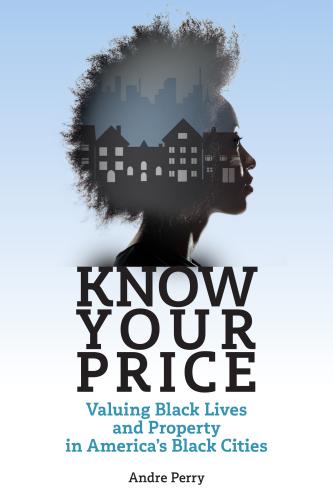
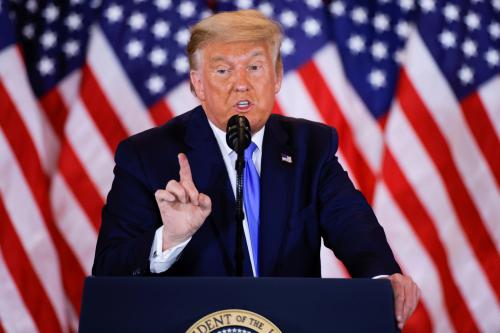
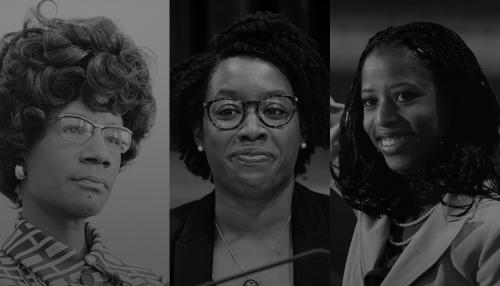
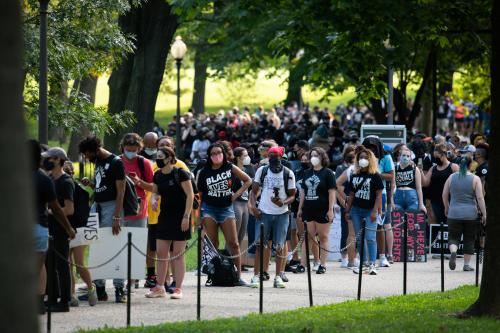


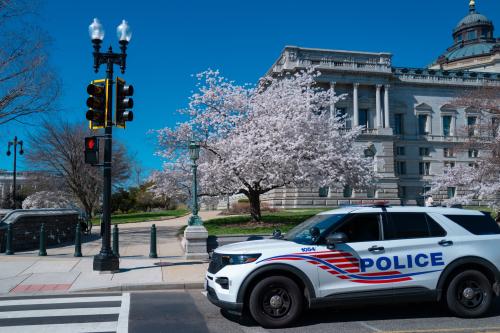

Commentary
A memo to President-elect Biden: Don’t coddle white racial anxieties
November 12, 2020